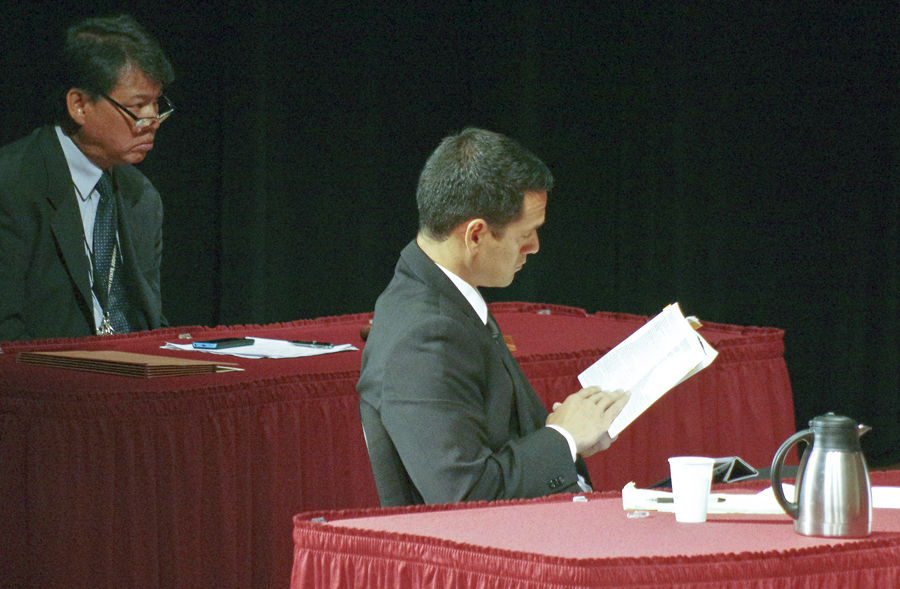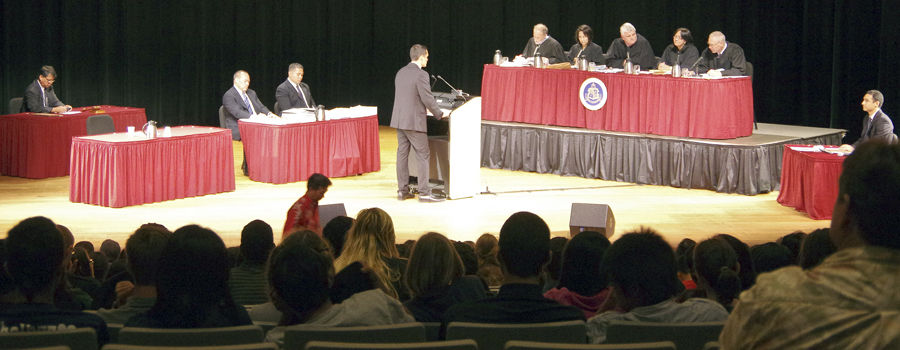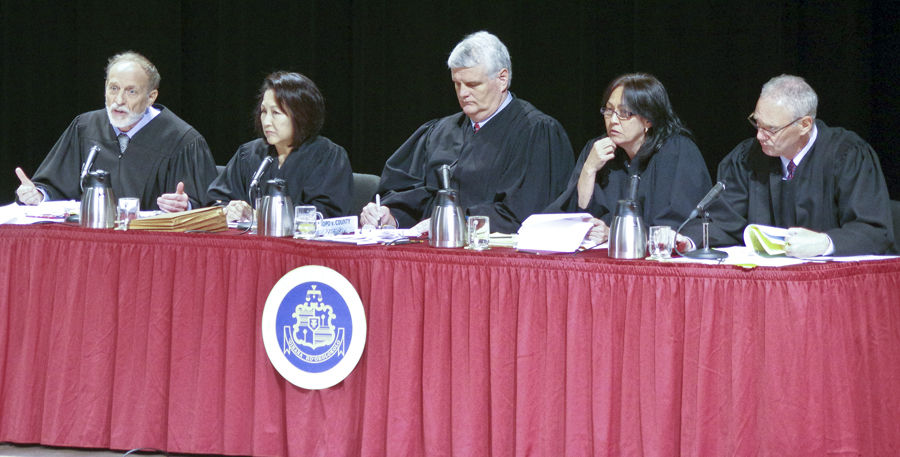LIHUE — Hundreds of high school students had their day in court on Thursday, but it wasn’t for anything bad. Instead, the hour-long court proceeding allowed them to see the legal system in action as five state Supreme Court justices took
LIHUE — Hundreds of high school students had their day in court on Thursday, but it wasn’t for anything bad.
Instead, the hour-long court proceeding allowed them to see the legal system in action as five state Supreme Court justices took on a longstanding dispute between the County of Kauai and State of Hawaii Organization of Police Officers, which represents unionized Kauai Police Department employees.
Seeing a real case argued before the high court, some students said, was an opportunity to apply lessons learned in their classrooms.
“It was different than what I expected,” Kauai Christian Academy senior Sade Reaurin said. “I already had a preconceived idea of what it would look like and it was cool to get to see what the actual process looks like.”
The court proceeding at the Kauai Community College Performing Arts Center marked the first time that the Hawaii State Judiciary’s Courts in the Community educational program made its way to Kauai.
Kauai High School sophomore Kendall Holmstrom said it was interesting to see the different ways in which specific aspects of laws and legal contracts can be interpreted.
“You have a preconceived idea of what a contract is when you sign things — it doesn’t matter what you do in your life — but now it’s more eye-opening for me to see how things can change and how they’re susceptible to be decided by a higher court or higher power,” Holmstrom said. “It’s interesting to see how everything that people do can be decided or changed.”
Holmstrom and Reaurin were among nearly 400 high school students who listened as attorneys, representing the County of Kauai and SHOPO, delivered their oral arguments on a six-year-long collective bargaining agreement dispute.
The disagreement stems from a 2007 decision by Kauai Police Department officials to not promote three Kauai Police Department officers and an arbitrator’s subsequent decision to grant the promotions retroactively, along with the associated pay and benefits.
“These decisions are imperfect — not everyone’s a lawyer that comes to be an arbitrator, in our cases,” Honolulu-based attorney Vladimir Devens, who represented SHOPO, opined before the court of last resort. “They don’t get it quite right all of the time … but that’s the hazards and the risk that we, as a union, and this employer assumed when we agreed to the grievance process, and that comes with the good and the bad.”
County Attorney Mauna Kea Trask argued that the arbitrator overstepped his authority by granting the promotions that were denied by Kauai Police Department officials after a candidate screening process.
“The crux of this matter is contained in the arbitration agreement itself — it’s an agreement between the parties and that is the review to be given and the matters to be specifically looked at,” Trask said. “In this case, it’s clear — the right to promote is solely and exclusively reserved to the employer and that right has not been specifically abridged by any portion of that agreement.”
State Supreme Court Chief Justice Mark Recktenwald said the educational program, over the past three years, has been a great success.
“I think it has helped us reach out to students in our community and have them become engaged in the process at the court and in our democracy through being able to see the court in action,” Recktenwald said.
A decision on the case isn’t expected for months.




